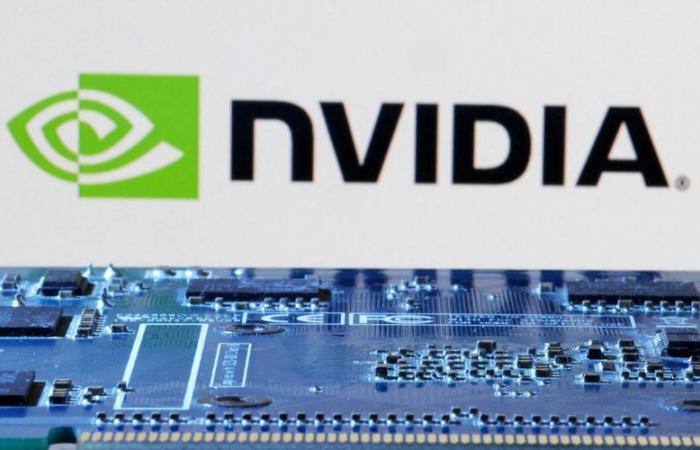Nvidia's revenue forecast disappointed Wall Street on Wednesday, raising questions about whether the artificial intelligence boom is running out of steam. But the answer, according to Nvidia executives, analysts and investors, is a resounding no.
There's no shortage of companies eager to create new artificial intelligence systems using Nvidia's premium chips, and the world's largest publicly traded company is selling them as fast as its contract manufacturer Taiwan Semiconductor Manufacturing Co can make them .
Nvidia forecast its weakest revenue growth in seven quarters on Wednesday, sending its stock down 2.5% in after-hours trading, and said supply chain constraints would lead to less demand for its chips exceed supply for several quarters in fiscal 2026.
Manufacturing these chips is difficult, and a defect discovered in one of them over the summer doesn't help matters.
Nvidia's new flagship chip, dubbed Blackwell, is actually made up of multiple chips that must be glued together in a complex process the chip industry calls “advanced packaging.” As TSMC works to increase capacity, packaging remains a bottleneck for Nvidia and other chipmakers.
“Blackwell adds more advanced packaging from TSMC than previous chips, which adds a problem,” said Ben Bajarin, CEO and principal analyst at research firm Creative Strategies. He expects Nvidia to have demand greater than its production capacity for all of 2025.
Nvidia's mistakes have exacerbated the problems.
Blackwell's design flaw forced Nvidia to undertake what it calls a “mask change.” CEO Jensen Huang said the defect, which has since been fixed, reduced Blackwell's chip yield, or the proportion of chips that come off the manufacturing line fully functional.
Nvidia has never given details about the defect, but complex chips like Blackwell can take months to produce because they require hundreds of manufacturing steps. Many of these steps involve passing ultraviolet light through a series of complex masks to project an image of a chip's circuitry onto a silicon disk – a process akin to printing the chip .
The mask change appears to have delayed Nvidia's production deadlines and cost it money, analysts say.
“There is a risk that bottlenecks will get worse instead of better, which could hurt revenue projections,” said Michael Schulman, chief investment officer at Running Point Capital.
In a conference call with investors, Nvidia executives said the company had shipped about 13,000 samples of its new chip and expected to beat its initial estimates that it would sell several billion worth of it. dollars during this quarter.
“We are at the beginning of our production ramp-up, which always comes with opportunities to improve yield,” Huang told Reuters on Wednesday. “We're taking Blackwell from zero to something extremely important. By definition, the laws of physics say there's a limit to how quickly you can scale up production.”
In the short term, increased production is expected to weigh on gross margins.
Nvidia executives have warned investors that the company's margins will drop several percentage points to the low 70% range until production issues are resolved.
Hendi Susanto, a portfolio manager at Gabelli Funds, which owns Nvidia shares, said there was no doubt that demand for the company's chips would remain “absolutely and exceptionally strong” for the foreseeable future.
“The key thing is supply – how much supply Nvidia can produce,” he said.






